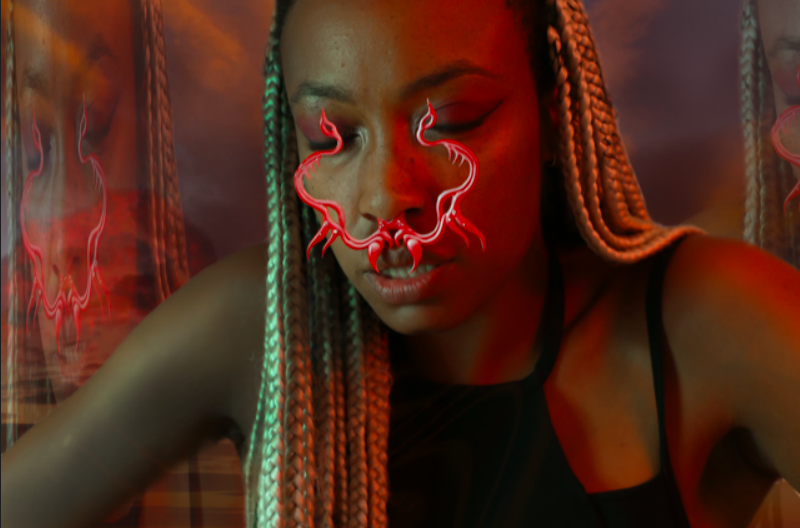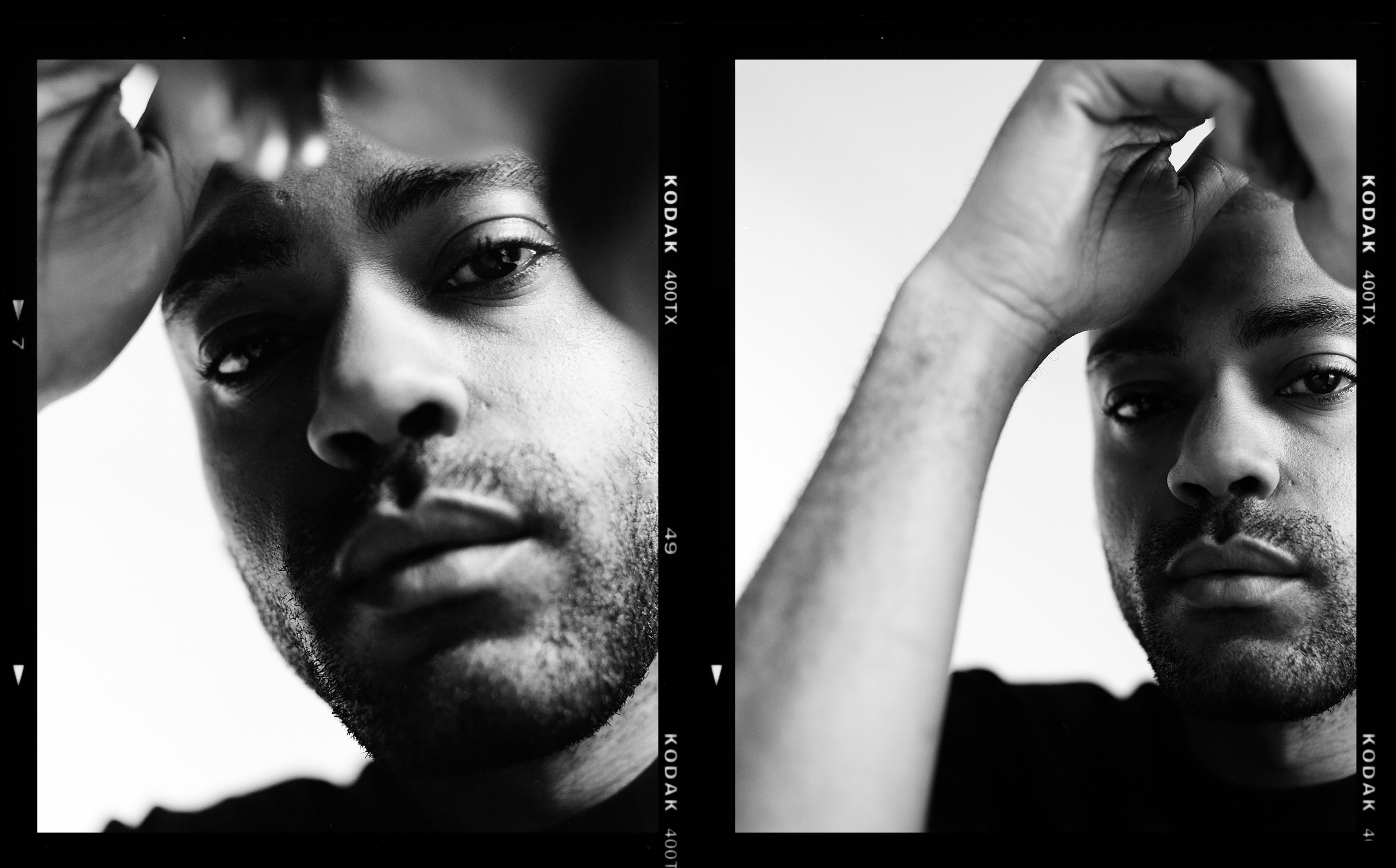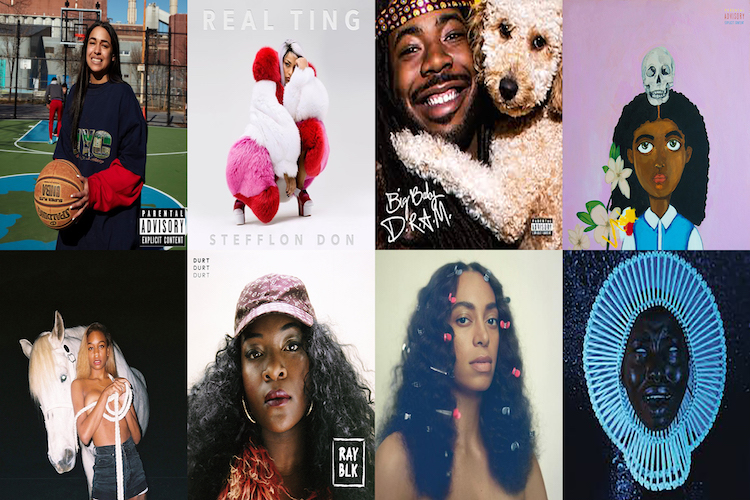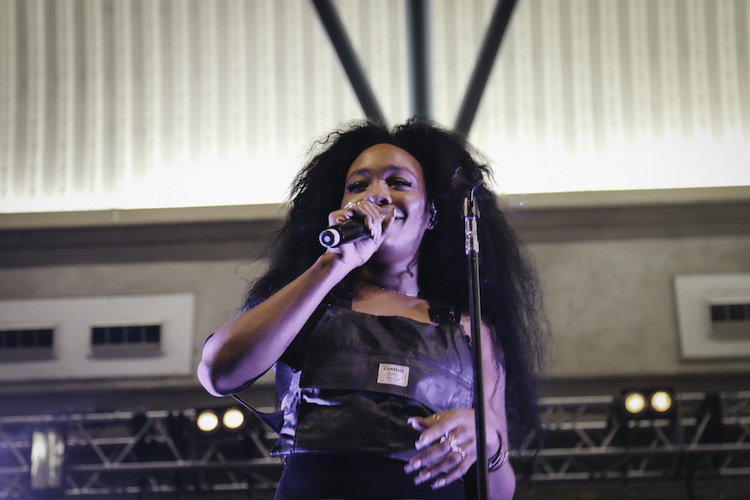
‘Usually it’s just white men getting all the glory’ – meet GLORIA, the frank futurist melding genres
Tara Joshi
19 Oct 2019
Photography via PR
Sitting opposite me in an East London café, GLORIA looks like she’s come from the future with her lilac braids, neon fuzzy jumper and a coat that I can best describe as cape-like. In fact, she’s from just outside of Blackpool rather than the year 2042. But with the work she releases, her sonics are definitely avant-garde leaning.
Her debut EP, Testify, dropped last month – it’s music that dissolves the lines between genres, all ominous, spacious beats, brushes of liturgical choral sounds and delicately dark, powerful vocals. These are ferocious, future sex / love / devotional sounds (sorry, Justin Timberlake) – it’s music that incarnates how frank GLORIA is. She’s part of London artistic polymath GAIKA’s Spectacular Empire label, and channels similar politics (also, for whatever it’s worth, you might be into her if you’re a fan of Kelela’s early stuff).
Ahead of her London show next week, we met up to talk about family, using the grassroots to overcome industry obstacles and utopias.
gal-dem: Did you always want to work in music?
GLORIA: Technically, yes. It’s funny, I grew-up next to Blackpool, and while I was there I did stage shows and pier shows – from that point, I told my mum I really wanted to do music. But we had a bit of a standoff, because she had seen my uncle and other people in the family who had done performance, and she was concerned about giving me false hope. And so I got pushed into academia, went to uni and studied business and finance – I was completely removed from my creative side.
So then what happened?
It was only after I finished uni when I picked that conversation up again. I was really into electronic music – techno, house, all that stuff. I started messing around and singing, and was getting introduced to producers, and they were asking me to jump on their tracks because they liked my voice. So that was how it started, and I did that sporadically for like three years but I got a bit jaded with that world and being a featured artist. Usually it’s just white men in the studio, white men getting all the glory, while as the vocalist you’re never getting seen. I got bored of people what to telling me what to do, and telling me that my own way of approaching music wasn’t right. I was about to quit. But that was when I met GAIKA.
You were both in Manchester, right?
We were like passing ships in Manchester, I never met him there. I used to go to the nights he ran there, but I didn’t know anything about him. But then a mutual friend introduced us at a festival, and GAIKA invited me to come to his studio – he’s very good at giving a platform to people to do what they need to do. From there he was like, ‘I think you should try writing some stuff on this’, and literally dropped me about 15 backing tracks. It was amazing because it was what I wanted and needed. I didn’t know where my sound fit in before that – I listen to so much stuff across different genres, so it gave me space to figure that out.
“It’s so important for us to build from the grassroots – black labels, black management, black everything”
– GLORIA
In your work, you’re very frank about sexuality – like on ‘U Up?’ where you’re calling out fuckbois, or even more broadly the kind of bondage aesthetic in your videos.
I’m from up north, right. We’re always frank about everything – and I was brought up in quite an interesting environment in that sex and sexuality wasn’t taboo. I’m half-Nigerian, quarter-Jamaican, quarter-Scottish. And don’t get me wrong, my Nigerian side is very religious Yoruba, and they still practice the confines of like, man is king, woman is secondary. But I grew up with my mum, and her side of the family is very fluid – she encouraged us to believe that women are powerful. So being able to be frank about who I am, it comes from her – and being frank and calling people out and talking straight about it all; that’s all I know how to do.
I guess this is changing, but historically in the music industry – because of who it is built by, and therefore who it is built for – the structures in place aren’t accommodating to women of colour (and black women particularly), and if you call stuff out it can work against you.
100%. You’re the angry black woman. But you know what, I’m really not arsed. What I hate about how pop music was built, is that it tries to keep everyone in a box – it’s so vanilla. People are scared to say anything meaningful, to actually talk about the system we are living in. Instead it’s like being part of this one big organism that’s easily sellable and palatable. It’s actually why I’ve stuck with GAIKA, because yes, he’s a very busy artist doing his own thing, but it’s so important for us to build from the grassroots – black labels, black management, black everything. So we can position ourselves how we need to be positioned.
Who else do you look to as an influence?
I’m inspired by people like Skin from Skunk Anansie, because she is constantly calling shit out, and keeping that punk nature alive. I think that’s why people struggle to label me: they think I’m doing this polished, future R&B, but then it gets a bit more experimental, and in my next stuff there’s this punk sound coming through too.
“My dad saw some clips of my first video and got a bit scared off”
– GLORIA
You get labelled under ‘futurism’ quite a lot, and I’m curious about how that manifests for you – like is your work about looking forward to creating a utopia, or..?
I’m trying to make future black music. I want my music to have its own little world around it, visually too. There’s something dystopian and religious in it right now, but I don’t want to continue this feeling – I want to call people out now, to create a utopia in the future. The whole idea is for people to be able to come together, and believe that there’s a platform for them. But I think you need dystopia to get to utopia.
Last question: is your mum happy you have gone for music in the end?
She’s my biggest fan now! On Instagram she always sends me fire emojis. Never underestimate the power of decisions or why they were made. My dad is very religious, and I used to worry about expressing myself freely in my work because in our communities you don’t want to be disrespectful to your family. I don’t think my dad’s listened to the EP, and I don’t think he will – he saw some clips of my first video and got a bit scared off [laughs]. But if I can get one track he can listen to, then I’m fine. Music is how I diarise my life, and I can spend my whole life not telling my parents what I’m actually like, or I can just do it.
GLORIA’S ‘Testify’ EP is out now. She plays London on 24 October at a secret location, RSVP for tickets here.









